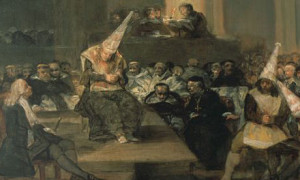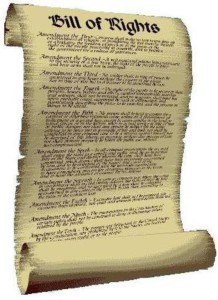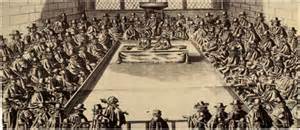I’ve been chronicling the legal foundations of British history to show how the early American colonists viewed their rights. Thus far, I’ve noted the significance of the Magna Carta and the Common Law. The seventeenth century saw a number of other improvements that are worth mentioning.
First, when King Charles I wanted money from Parliament to conduct a war, the Parliament balked, issuing instead what we call The Petition of Right in 1628. Any law like this, when you look at its particulars, tells you what has been going wrong. In this document, the king was told basically to remember his proper place.
The Petition of Right stated the following:
- There can be no forced loans or taxes;
- Habeas corpus is required when someone is imprisoned (meaning the government has to provide the rationale for the imprisonment);
- No troops can be quartered in personal homes without the consent of the property owners;
- Men are to be judged by civil law, not martial law;
- All taxes must come only by an act of Parliament.
 This was followed up in 1641, at the start of the English Civil War (which eventually led to Charles losing his head, literally), with an act that abolished the Star Chamber, a court that would persecute and punish religious dissenters. This act not only gave more muscle to habeas corpus, but also reaffirmed due process of law and trial by jury. In addition, it abolished the requirement that a person must give testimony against himself.
This was followed up in 1641, at the start of the English Civil War (which eventually led to Charles losing his head, literally), with an act that abolished the Star Chamber, a court that would persecute and punish religious dissenters. This act not only gave more muscle to habeas corpus, but also reaffirmed due process of law and trial by jury. In addition, it abolished the requirement that a person must give testimony against himself.
 Finally, near the end of the century, in 1689, the English Bill of Rights came into existence after James II was kicked out of England (he was a vocal proponent of the Divine Right of Kings theory that said kings pretty much spoke for God). This Bill of Rights contained the following provisions:
Finally, near the end of the century, in 1689, the English Bill of Rights came into existence after James II was kicked out of England (he was a vocal proponent of the Divine Right of Kings theory that said kings pretty much spoke for God). This Bill of Rights contained the following provisions:
- No taxation, execution of laws, or suspension of laws without the consent of Parliament;
- Citizens have the right of petition;
- No standing armies in time of peace;
- Protestants have the right to bear arms;
- Free speech in Parliament without penalty;
- No excessive bail or fines;
- No cruel & unusual punishments;
- Right to trial by jury;
- Punishments must come only after convictions.
If some of those provisions sound familiar, it’s because this document is a direct ancestor of our American Bill of Rights added to the Constitution.
America’s founders were well versed in the history of British liberty, and it formed the backdrop of their arguments with the Mother Country. They also relied on certain individuals who had written some incisive commentaries on how government and law are supposed to operate. I’ll turn to those writers next.

